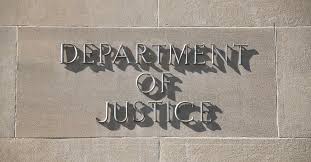NatWest Markets Pleads Guilty and Agrees to Pay $35 Million for Fraudulent “Spoofing” Scheme (Part I of II)

The Department of Justice secured a guilty plea from NatWest Markets, the newly-named Royal Bank of Scotland, for trade manipulation, referred to as “spoofing,” in U.S. Treasury markets. The NatWest resolution reflected new changes in DOJ’s white collar enforcement policies, including acknowledgement and consideration of NatWest’s prior misconduct (criminal and civil) and appointment of an independent compliance monitor. NatWest was not offered a deferred or non-prosecution agreement; instead it was required to plead guilty to a criminal charge of securities fraud and another charge of wire fraud.
“Spoofing” refers to the trading practice where traders place sales or purchase orders with no intention to consummate the transactions. Traders who place such orders will cancel the orders prior to consummation.
Under the plea agreement, NatWest agreed that during the period of 2008 to 2014, traders in its Stamford and London offices spoofed the market for Treasury futures contracts. In addition, two traders at NatWest’s Singapore branch spoofed the secondary cash market for Treasury securities in 2018. The spoofing scheme violated a 2017 non-prosecution agreement between the United States and NatWest’s broker-dealer subsidiary, and occurred while NatWest was on probation for a separate conviction for manipulation of the foreign currency exchange market.

DOJ cited NatWest’s status as a repeat offenders as justification for requiring a criminal guilty plea to two counts. Under the plea agreement, NatWest Markets will pay $35 million in restitution, forfeiture and a criminal fine, serve three years’ probation and take on an independent compliance monitor.
In requiring that NatWest plead guilty to a two-count Information, the Justice Department cited the material breach of NatWest’s October 25, 2017, Non-Prosecution Agreement and NatWest’s status on probation following its May 20, 2015 guilty plea for conspiracy to manipulate the foreign currency exchange market. In particular, DOJ cited NatWest’s substantial prior criminal history of similar conduct in the securities and commodities markets. Also, DOJ cited several civil regulatory settlements involving the Commodity Futures Trading Commission, a separate settlement involving misrepresentations in underwriting and issuing residential mortgage-backed securities, and a guilty plea in the United Kingdom by a banking affiliate for violating U.K. Money Laundering Regulations between 2021 to 2016.
NatWest did not receive credit for voluntary disclosure, although it reported the conduct pursuant to its reporting obligations under the Non-Prosecution Agreement. NatWest received credit for cooperation for providing all relevant facts known to it and partial credit for producing documents from foreign countries, proactively identifying important documents and information, making an employee available for interviewing and collecting, analyzing and organizing voluminous evidence and information. However, NatWest was not able to produce certain trading data relevant to the 2008 to 2014 scheme because the data was no longer available.

NatWest improved its compliance program and internal controls after the 2008 to 2014 misconduct, including expansion of its automated trade surveillance, implementing a new Market Abuse Policy and Statement of Conduct and completing remediation after its foreign exchange guilty plea. After the 2018 scheme, NatWest promptly investigated a counterparty complaint, remediated technical and training issues that contributed to a delay by surveillance personnel in escalating the trading misconduct, and suspended (and later terminated) the two traders involved and terminated the supervisor.
As noted by DOJ, NatWest had an inadequate and ineffective compliance program and internal controls. NatWest enhanced its compliance program and internal controls to ensure that it met the effective compliance program requirements. Notwithstanding these efforts, DOJ imposed an independent compliance monitor.
Based on all of these consideration, DOJ determined that NatWest should receive a 20 percent discount from the applicable fine amount.
















1 Response
[…] Source link […]